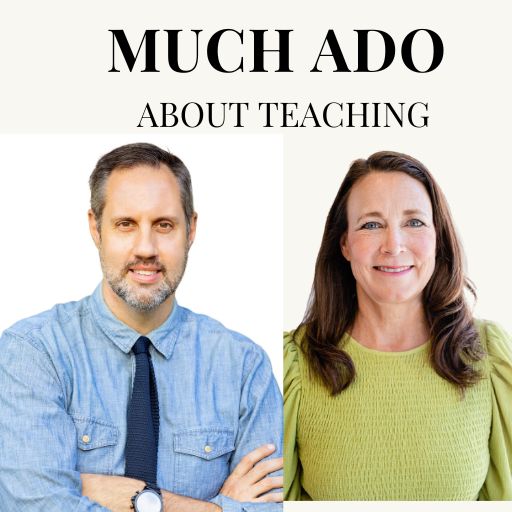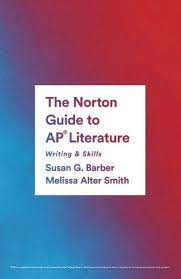This year, I had the opportunity to read for Question 3, the Open-Ended Question. I was excited with the assignment since I had never formally read for this essay at any of the readings, but I was also a bit concerned about the accuracy of my performance because of the sheer variety of responses I would read; since students had the opportunity to present their argument in so many different ways with their different choices of novels, I was a bit worried about being able to calibrate my scoring and apply it consistently. Over the week, though, I became more comfortable with the assignment, and much like I had noticed with Questions 1 & 2, and I began to pick up on the common “standards” or “threads” that all students – regardless of novel – needed to touch upon to find success!
Here what students had to respond to in the Q3 2023 operational prompt:
Many works of literature feature a rebel character who changes or disrupts the existing state of societal, familial, or political affairs in the text. They may break social norms, challenge long-held values, subvert expectations, or participate in other forms of resistance. The character’s motivation for this rebellious behavior is often complex.
Either from your own reading or from the list below, choose a work of fiction in which a character changes or disrupts the existing state of societal, familial, or political affairs. Then, in a well-written essay, analyze how the complex motivation of the rebel contributes to an interpretation of the work as a whole. Do not merely summarize the plot.
What students did well:
Thesis:
Most students were awarded the thesis point. I believe that approximately 96 percent of students were able to identify a character from a novel who acted as a rebel, in some shape or form, against the powers that be in the novel. According to the rubric, this mention of rebelliousness could take place anywhere in the essay, so most students were able to find a way to somehow touch upon this idea at some part in their writing.
Commentary and Evidence:
Students who did well in the body of their essay understood the task and were able to speak about it with specificity. So, for example, if a student wrote about Randall McMurphy being a “rebel” because he defied the rigid expectations of the Combine (in One Flew Over the Cuckoo’s Nest by Ken Kesey), they were able to bring up numerous, specific moments throughout the novel where he rebels against Nurse Ratched and the status quo rather than just simply saying that “McMurphy went against her.”
Also, students who performed particularly well in this area were not only able to bring up specific evidence from the novel, but also able to bring up the expectations/norms/values the characters were disrupting (some background context to the novel’s setting and environment) and how the character’s disruption of said norms ultimately illuminates the theme. Weaker essays did all of these things, but the highest performing essays were able to weave these elements together into a cohesive argument.
Sophistication:
Students who received this point, at the very least, had a controlled, sustained argument throughout their entire essay. That being said, students who had this argument were usually only awarded the mythical sophistication point if the points they brought up were particularly insightful and/or if they employed a writing style that was “consistently vivid and persuasive.”
Students did not need to necessarily have all three of these components marked off, but the students who generally received the sophistical point were generally able to incorporate all three of them into their essays.
Where students can improve:
Thesis:
Even though, as I said earlier, approximately 96 percent of students were able to receive the thesis point, it doesn’t necessarily mean their thesis statements were particularly strong!
Many times, the thesis statement didn’t even appear until later in the essay, so I’d have to scour through an essay to find something resembling the mention of a “rebellious character.” For students, not having a clear thesis in the introduction makes it very difficult to find a cohesive line of reasoning or organizational pattern.
Also, many of the “weaker” thesis statements did not directly address the different elements of the prompt. So, even though most students were able to identify a rebellious character (which would get the thesis point in itself), they did not discuss how this character’s rebellion illuminated the larger theme of the novel, which is what these prompts always ask them to do.
Commentary and Evidence:
The commentary and evidence (or lack thereof) was the most consistent issue I saw plaguing the students’ essays.
The biggest problem students had when developing commentary and evidence was simply providing specific evidence from the novel. Some students simply talked about, for example, Janie rebelling, but without a bit of context to the prevailing attitudes/values of the time, their argument would be lost.
Other students just provided vague generalities about the text without introducing any specifics, which the prompt and rubric specifically asks them to do. Also, failing to mention any specifics doesn’t provide any evidence that the student actually understands the intricacies of the book, which ends up weakening their argument. Many students who wrote about Frankenstein, for example, ended up writing about the monster wreaking havoc, which did happen; however, without providing any specifics from the novel, students were not able to develop their argument or talk about it in detail.
Perhaps the biggest issue I saw, however, was that students were simply summarizing the novel and not talking about how the plot details contributed to the novel’s theme. Again, most students were able to identify the “rebellious” character, but without discussing – in specifics – why they were rebelling, what they were rebelling against, or what the rebellion means on a broader scale beyond the book, the argument would fall flat.
Teaching points/extensions for the classroom:
Based on what I saw from the reading, here are the things that I plan on reiterating or reinforcing with my students next year.
- Have students break down the prompt piece by piece.
- Many students didn’t fare well on the essay simply because they weren’t responding to the prompt. Each of the prompts for Q3 ask that students respond to several different components, so I think it will be good practice for students to work with a variety of prompts and identify exactly what they need to respond to in their essay.
- Scale down their introductions:
- There were a lot of who appeared to run out of time, many of which had an excessively long intro that undoubtedly took time away from the most important part of the essay: the body paragraphs. I’d suggest having students produce no more than three sentences for an intro and get right into the heart of their essay without delay.
- Utilize direct language from the prompt:
- As much as I encourage my students not to simply parrot the prompt, I saw many, many essays that were wildly off course because they strayed too far from what was asked of them. I’d recommend that the students use direct language from the prompt (albeit not excessively) to ensure, at the very least, they start off their argument on the right foot.
- Ensure that students are writing their thesis statements in a way that responds to ALL components of the prompt.
- Again, most students got the thesis point simply because they were able to identify the “rebellious” character in their novel of choice. But many students did not tie the rebellious character’s action into the theme, which, to me, is the most significant part of the prompt. Without that connection, there’s essentially no argument, and students performed relatively poorly as a result.
- I’d suggest – at least to begin with – providing some kind of “stable wording” or generic sentence structure that essentially forces them into addressing the specifics of the prompt. Something I tried last year that worked somewhat well was requiring that students use the phrasing “______________ illuminates the theme that ______________.” The phrasing (which is admittedly a bit formulaic or pedestrian) worked for many of my students because it forced them to pull from specific parts of the prompt to respond in a way that links it with the theme. So, with this prompt, an example student response could look like: “Victor Frankenstein’s rebellion against the scientific norms at the time illuminates the theme that excessive ambition can result in deadly consequences.”
- Spend some time looking at important or significant scenes/passages from the novel.
- I think most of us here are realistic enough to acknowledge that many of our students aren’t actually reading the books we assign (which makes me cry). But, one way you may be able to *somewhat work around this issue is by spending time on specific passages that are particularly weighty or significant to the novel’s themes. Many times in my class, I would notice that students would often pull the specific passages that we analyzed in class as evidence in their Q3 responses, which I assume was from the fact that these excerpts were the only parts of the book that they actually read. So, I think pulling several key passages for close analysis during the novel’s unit would be helpful in helping them hone in on their understanding of the novel, particularly for those who aren’t reading them!
- Find ways to incorporate other genres to help your students retain the information:
- One way I tried helping my students retain specifics of the novels we read was by incorporating other genres, i.e. a film, a poem, an illustration, etc. By giving them other resources to compare the novel to, it helped many of my students remember specific plot points and allow them to incorporate them into their work in a meaningful way.
*Side note/shameless plug: I’m working on creating contemporary poetry pairings with a few of our more popular/used novels this year, so please keep an eye on lmscurriculum.com throughout the summer for these materials!
- Widen the scope of your curriculum:
- Even though many of us are comfortable teaching full-length novels as our core texts, the re-wording of this prompt in the past few years has opened up some exciting possibilities! As readers, we are instructed to read anything that students write about, including short stories, poems, plays, and yes, even movies. In fact, there were a host of students who did quite well writing about works other than novels. Several essays were written about the one-act play, Rodeo, all of which did exceptionally well. There were a few movie responses that received strong scores based on the merit of their writing and their ability to sustain their argument, like essays on Parasite, Mulan and – my personal favorite – Footloose. Anyhow, we have the opportunity to make our curriculum more expansive and diverse and still prepare our students for the exam, so don’t feel hesitant to mix up what you’re doing!

Brian Hannon is the Director of Secondary Curriculum for LMSvoice. He currently teaches AP Literature and Composition, AP Language and Composition, and Team-Taught English 11 at Hayfield Secondary School in Alexandria, Virginia.













One comment
Yes
More essays, – cried he.
Okay, – replied ChatGPT.